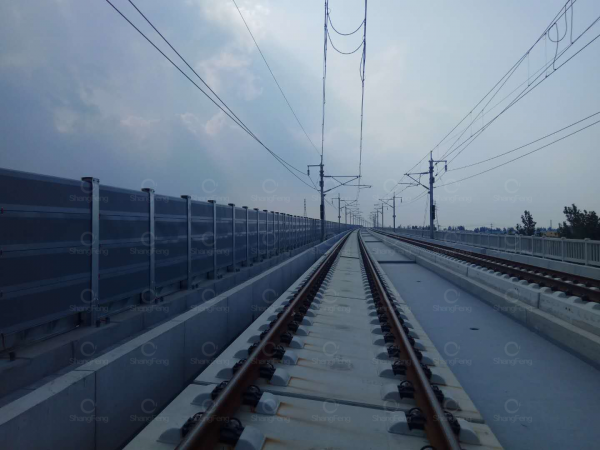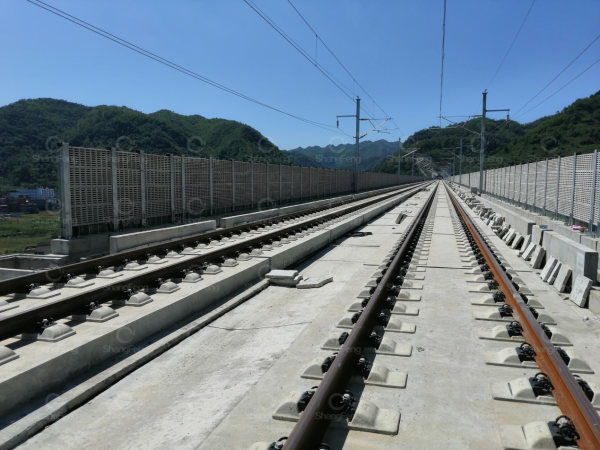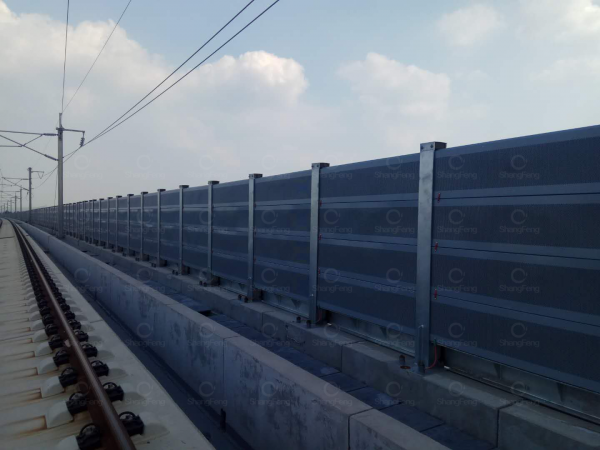The Jiqing High-speed Railway Sound Barrier Project is designed to reduce the noise impact of high-speed train operations and improve the comfort of the surrounding environment. Sound barriers typically consist of acoustic components, the main function of which is to isolate and absorb the noise generated by high-speed trains, reducing their impact on nearby residents and the environment.
According to the provided information, the Jiqing High-speed Railway runs from Jinan East Station in the west to Hongdao Station in the east, with a total length of 307.9 kilometers and a design speed of 350 km/h. It is an important high-speed railway connecting Jinan and Qingdao in Shandong Province, serving as the eastern part of China’s “Eight Vertical and Eight Horizontal” high-speed railway network Qingyin Channel. The sound barrier project is located in Weifang City, Shandong Province, and the company undertook the construction of a 12-kilometer sound barrier project for the Jiqing High-speed Railway in 2018.
According to the design requirements of the sound barrier project, the weighted sound insulation of the acoustic components is not less than 30 dB, and the noise reduction coefficient is not less than 0.70. These indicators indicate that the sound barrier has a high sound insulation effect, effectively reducing the noise generated by high-speed trains and providing a relatively quiet living environment for nearby residents.
The construction of the sound barrier project not only improves the quality of life for residents along the line but also helps protect the surrounding environment and reduce disturbance to wildlife, reflecting the concept of emphasizing ecological environmental protection in transportation infrastructure construction.



